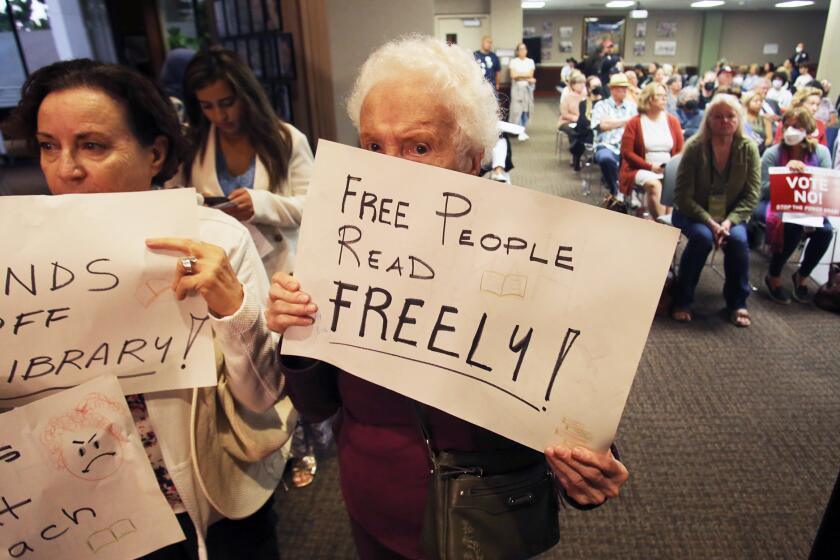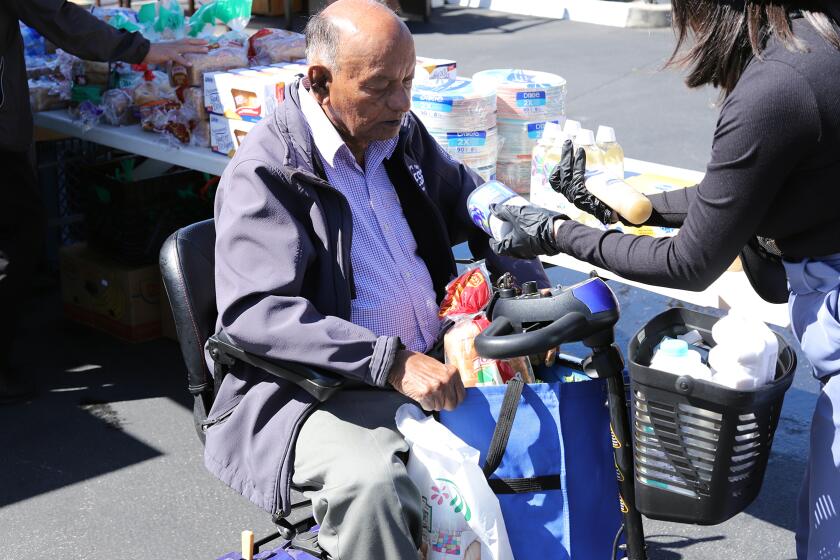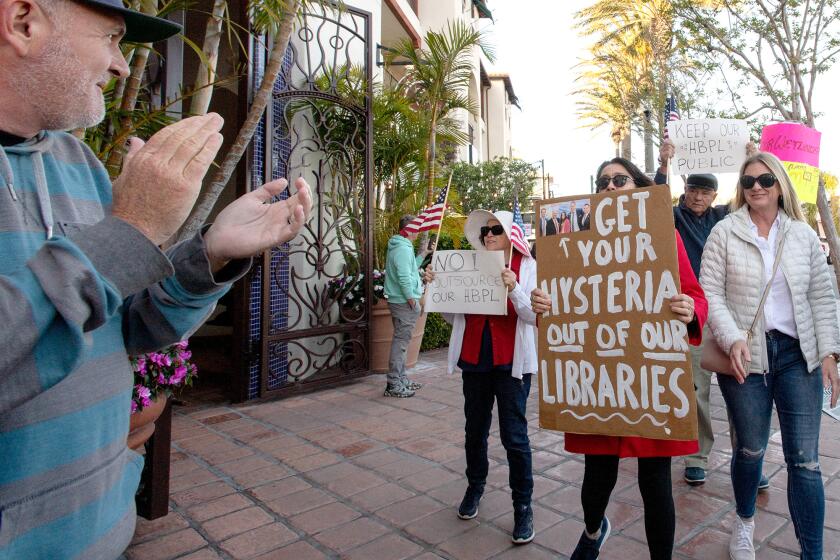City Lights: One more reason to be grateful to vets
A few years back, the Los Angeles Times wrote a moving story about the death of Britain’s last-surviving army veteran of World War I. No, that’s not a typo. The man’s name was Harry Patch, and he passed away at the age of 111, breaking his country’s last surviving link to the nearly century-old war.
Reading the story, I was struck by how much of an everyman Patch seemed — and, given his unusual circumstances, how iconic he became in others’ eyes. The former machine-gunner had been feted by governments and celebrated by England’s poet laureate; when he died, the prime minister declared that the country was mourning “the passing of a great man.”
To borrow a line from Shakespeare, some people are born great, others achieve greatness, and others have greatness thrust upon them. Patch, who was a teenage apprentice plumber before being drafted in 1916, probably had no inkling that his country would view him as a priceless resource 93 years later. But the simple fact is, someone must be the last of any group to die. And when they do, a chapter of history goes with them.
I thought of Patch on Labor Day this year when I visited an annual picnic held by American Legion Huntington Beach Post 133. The post comprises veterans of many wars, and those from World War II, in particular, are thinning in ranks. That notion is disquieting to me personally — when I was growing up, members of the Greatest Generation were gray-haired but robust, and Baby Boomers were just inching into middle age. Time hurries on.
At that picnic, I learned that two members of Post 133 are writing memoirs of their military experience, which they plan to self-publish. Will their books have a wide readership? Without a major publishing house, perhaps not. But each one is a precious resource, a firsthand account of a time whose witnesses, increasingly, are few and far between.
One of those authors, Milton Cook, is already seasoned at self-publishing. In 2008, he put out “That’s the Way the Ball Bounces,” a recollection of his experiences as a military policemen in the Army Air Forces. Right now, he’s working on another memoir of his time in the Navy after World War II. The title for that one: “That’s the Way the Buoy Bobs.”
Cook, who is nearly 90, spends about two hours a day writing when he can manage. He enjoys the craft, but doesn’t expect the book to be hugely profitable — he knows from experience how hard advertising can be.
“It’s a niche,” he told me by phone Monday. “The people who have read it like it, but to get people’s attention is a problem.”
Still, Cook is making his way through the last rewrite of the book and preparing to select illustrations. His work may find a niche audience, but given how many other veterans share his experiences, it ought to be an eager and attentive niche.
The other author, Harold “Hal” Tor, I already knew well. A year and a half ago, I wrote a profile on him when his medals from World War II arrived on his doorstep 66 years after he returned home from the Pacific. A fellow legionnaire had pulled the strings to have them delivered, and Tor, who lost an arm in the war, had mounted them proudly in a frame over black velvet when I visited his home.
Friday afternoon, I stopped by Tor’s study again to see a copy of “Private Tor,” the memoir he’s worked on for the last year. Though he hasn’t finished proofreading the book, he’s printed and bound about 100 advance copies for friends using a pair of machines he has by his desk.
The 300-page paperback, dotted with photographs that Tor found online, outlines the two years the Brooklyn native spent in the war after he lied about his age to enlist at 16. During that whirlwind time, Tor took part in a beach invasion in the Philippines, survived a Japanese ambush and befriended the owner of the Hope Diamond while recuperating in America.
Tor, whose office sports his medals on the wall and a copy of “Atlas Shrugged” above the computer, is a natural storyteller. In his study on Friday, he acted out the story of how he snuck his age past the recruiting officer — in part, by challenging the officer to a fight when the man questioned his toughness. He was eager to preserve his tales on the page, but he had another motivation.
“Ten years from now, you won’t see any more World War II veterans,” Tor said. “They’re dying — 1,000, 1,100 a day.”
Someday, those numbers will be down to one. And when they are, we can thank people like Cook and Tor for preserving their stories for posterity. It won’t be the first time we’ve owed them an effusive thanks.
City Editor MICHAEL MILLER can be reached at (714) 966-4617 or at michael.miller@latimes.com.
All the latest on Orange County from Orange County.
Get our free TimesOC newsletter.
You may occasionally receive promotional content from the Daily Pilot.



